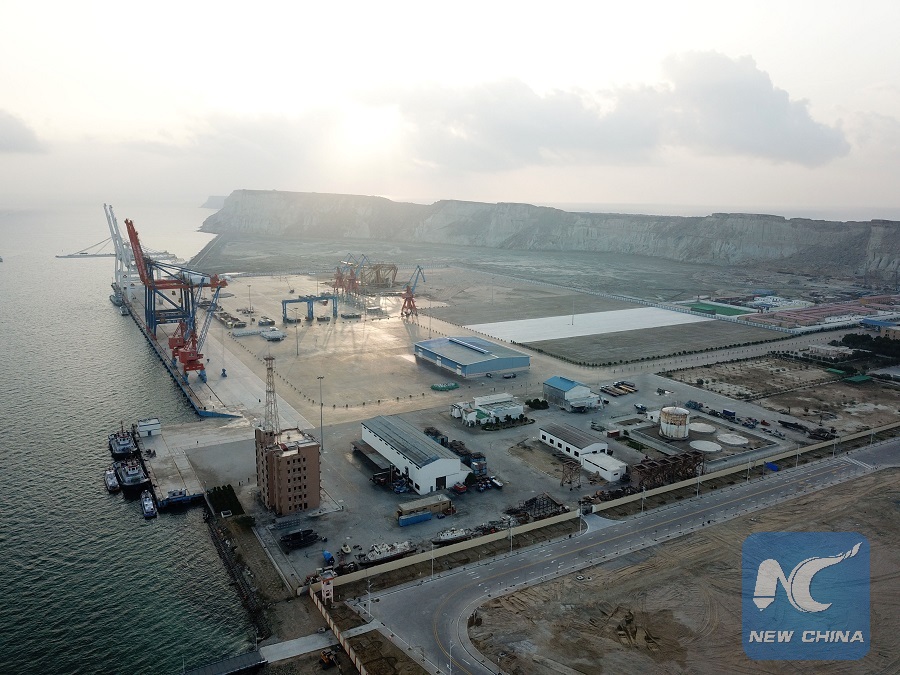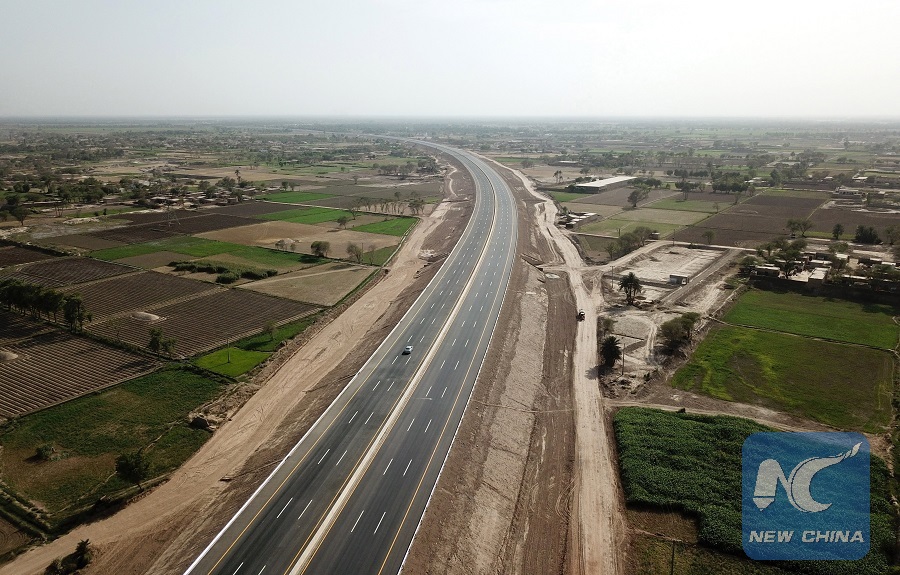
Photo taken on Jan. 29, 2018 shows a view of Gwadar port in southwest Pakistan's Gwadar. (Xinhua/Ahmad Kamal)
by Jamil Bhatti
ISLAMABAD, Sept. 3 (Xinhua) -- The Pakistani government led by Prime Minister Imran Khan has shown its full support and a firm commitment to the China-Pakistan Economic Corridor (CPEC), vowing to utilize the project for poverty alleviation and development of the country.
In the victory speech after his Pakistan Tehreek-e-Insaf (PTI) party won the July 25 general election, Imran Khan described CPEC as one of the best models to bring people out of poverty and assured the nation that the PTI would take it as an opportunity for the development of Pakistan.
"China has given us an opportunity of progress by starting CPEC which can raise prospects of investment flows from other countries and investors," said Khan, adding that his government would learn from China how they pulled out 700 million people out of poverty.
Local political watchers said that CPEC can help the PTI fulfill its manifesto in which the party promised to provide 10 million jobs for youth and marginalized communities in its five-year tenure.
On Saturday, an official statement said that the government had posted nine experienced and senior officers to the southwest Balochistan province as part of their policy to expedite development projects under CPEC in the province, the house of CPEC's major project of Gwadar port.
In his several public speeches and interviews before the general elections, Khan also vowed to work on CPEC more vigorously so as to extract the best and maximum benefits for the country.
Khan once told media that CPEC had injected a new energy into Pakistan's national economic and social development by bringing many positive aspects, especially by providing some 60,000 direct jobs to Pakistani youth during the past five years.
Earlier on Friday, Pakistan's Federal Minister for Planning, Development and Reform, Makhdoom Khusro Bakhtiar, said that the government is fully committed to the development of CPEC for the country's development, prosperity, poverty alleviation, human resource development, job creation, industrialization and power generation.
Bakhtiar, who is also the minister in charge of CPEC, held a meeting with Chinese Ambassador to Pakistan Yao Jing and said that development of the Special Economic Zones (SEZs) under CPEC is the priority area of the new government to achieve high economic growth and to encourage exports.
The Pakistani government has already asked all the officials concerned to speed up the efforts for SEZs where industry, commerce and entrepreneurship will be the main areas of focus, a way to generate employment opportunities for skilled and unskilled labor.
The minister also discussed various models of possible Chinese investment for the CPEC projects, third party participation and possible cooperation in agriculture and tourism sectors.
Fawad Chaudhry, Pakistan's information minister, commented last week that the CPEC is an expression of Pakistan's geo-social relationship with China and the government intended to further develop the corridor.

Photo taken on May 25, 2018 shows the Multan-Shujaabad section of Multan-Sukkur Motorway in Multan, Pakistan. (Xinhua/Ahmad Kamal)
Power projects under the CPEC have brought a great practical change in Pakistan's energy sector by bringing 13 to 14 hours a day of load-shedding in 2013 to almost zero in 70 percent areas of the country. Over 20 energy projects have been planned under the CPEC, which will double the energy-thirsty country's current capacity for electricity production after their completion, according to the planning ministry.
A speedy work is in progress at several road infrastructure projects under the CPEC which is connecting the country's north with the south.
Cooperation from China helped Pakistan emerge as a rising economy in the world, the planning ministry said, adding that projects under the CPEC, including road infrastructure, energy projects and Gwadar port, would accelerate economic development and would further open Pakistan to the world.

